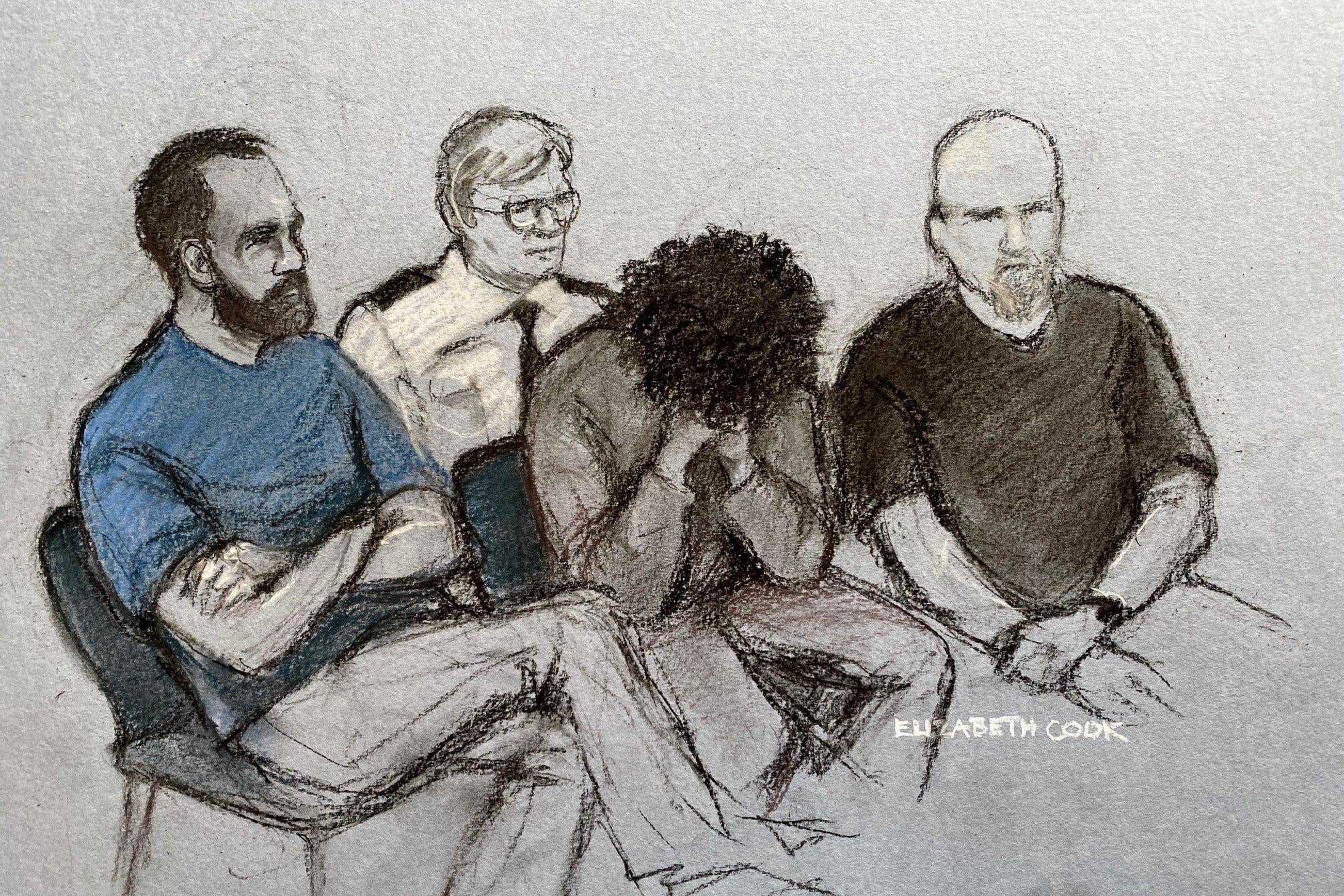Why can the suspect in the Southport stabbings now be named?
Questions were raised after the teenager’s arrest about why his identity had not been made public.

A 17-year-old charged with the murder of three girls in the Southport knife attack has now been named as Axel Rudakubana.
Questions were raised after the teenager’s arrest about why his identity had not been made public while detectives were given more time to question him.
He has also since been charged with the attempted murder of eight other children and two adults, as well as possession of a kitchen knife.
Continuing to prevent the full reporting has the disadvantage of allowing others to spread misinformation, in a vacuum
At Liverpool Crown Court on Thursday, Judge Andrew Menary KC ruled he would not impose reporting restrictions to keep the defendant’s identity anonymous and said: “Continuing to prevent the full reporting has the disadvantage of allowing others to spread misinformation, in a vacuum.”
Earlier in the day, Rudakubana appeared at Liverpool Magistrates’ Court, which was sitting as a youth court where automatic reporting restrictions were applied due to his age.
The boy was not identified earlier this week because of his age amid active ongoing criminal proceedings.
The criminal age of responsibility in England and Wales is 10-years-old, meaning children aged between 10 and 17 can be arrested and taken to court if they commit a crime.
The identity of defendants and witnesses under the age of 18 who are subject to criminal proceedings in youth courts is protected by automatic reporting restrictions under Section 49 of the Children and Young Persons Act 1933.
If a child is charged with an offence and is facing criminal proceedings in adult courts – magistrates’ and crown courts – then magistrates and judges have legal powers to grant anonymity to a child defendant, witness or victim under Section 45 of the Youth Justice and Criminal Evidence Act 1999.
Both of these laws ban the press from publishing a child defendant’s name or any detail which could lead to them being identified while the reporting restrictions remain in place.
This is why media reports sometimes say they cannot identify a child involved in a criminal court case for legal reasons.
The automatic restrictions technically begin once court proceedings are active – when a suspect has been charged and is appearing in court for the first time.
But media organisations typically refrain from identifying any child arrested on suspicion of a crime, having considered their ethical and other legal responsibilities, because there is the prospect this could then lead to prosecution and court proceedings where the reporting restrictions in question will activate.
Press regulator IPSO advises editors to “generally avoid naming children under the age of 18 after arrest for a criminal offence but before they appear in a youth court unless they can show that the individual’s name is already in the public domain, or that the individual (or, if they are under 16, a custodial parent or similarly responsible adult) has given their consent”, adding: “This does not restrict the right to name juveniles who appear in a crown court, or whose anonymity is lifted.”
If restrictions are imposed, or automatic restrictions apply, child defendants remain anonymous throughout legal proceedings and the rulings can be challenged – usually by reporters – after the court case has ended.
If a child is convicted of a crime, having either pleaded guilty or been found guilty after a trial, magistrates and judges have powers to lift reporting restrictions so the defendant can be identified in some circumstances, including if this is considered in the public interest.
Media may try to challenge the anonymity order if identifying the child could help to maintain public confidence in the justice system, or deter others from offending, by allowing full details of the case to be reported.
There could be a strong public interest in lifting reporting restrictions when the convicted child had been involved in significant disorder so the public can be satisfied an offender has been brought to justice, or if the case involved serious offences which undermined the public’s confidence in the safety of their communities, for example.
In February, teenagers Scarlett Jenkinson and Eddie Ratcliffe were identified for the first time as they were both handed life sentences for the “sadistic” 2023 murder of transgender 16-year-old Brianna Ghey, after a judge lifted a ban on them being named by the press.
But the restrictions automatically end when the child turns 18.
In Rudakubana’s crown court hearing, in light of applications by lawyers to impose a section 45 restriction, Judge Andrew Menary said: “Whilst I accept it is exceptional, given his age, principally because he is 18 in six days’ time, I do not make an order under section 45”.
